Introduction
Native Americans
Native Americans from the United States are descendants of the first peoples who already inhabited North America way before any colonizers ever reached it.
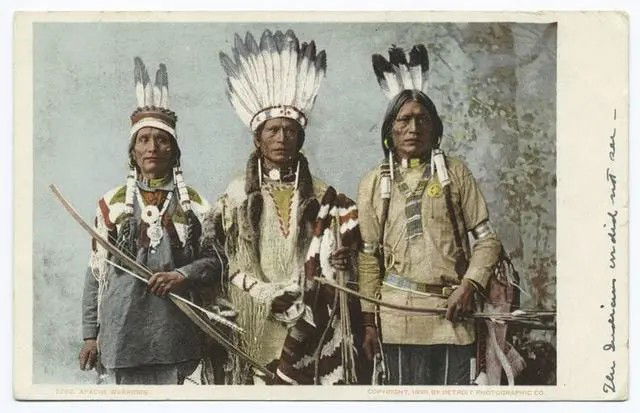
Here's some trivia for you: for a long time, the term "Indian" was used to refer to Native Americans because Christopher Columbus thought he had reached India when he got to the American continent. This way, he thought the people that already lived there were "Indians".
In any case, Native Americans excelled at hunting, fishing, gathering and preparing food. These practices are incredibly rich and a critical part of their culture.
Without further ado, let's play Bison!
Game Info
Bison: Thunder on the Prairie, or just Bison, is best played with 2 to 4 players, for ages 10 and up, and was designed by Michael Kiesling and Wolfgang Kramer. It was illustrated by Franz Vohwinkel.
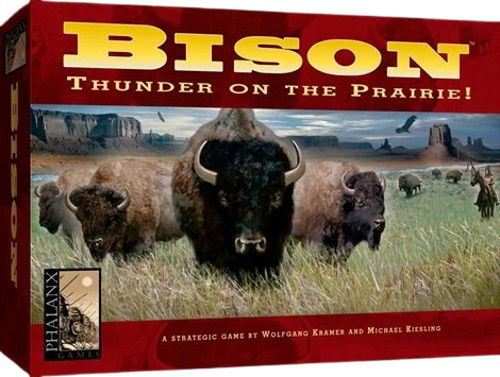
It was first released by Phalanx Games in 2006. Its basic mechanics are: tile placement, area majority/influence, action points, and action market.
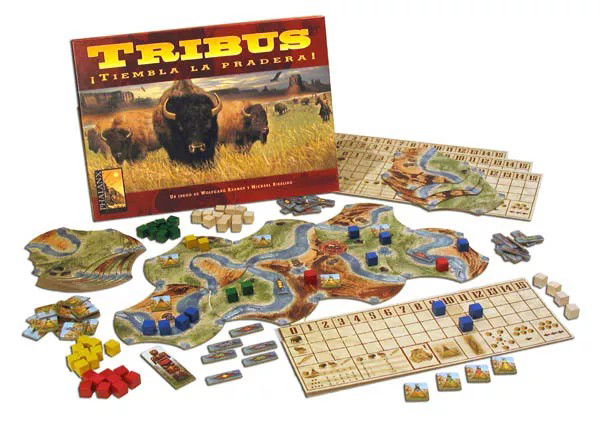
Together, Michael Kiesling and Wolfgang Kramer have designed over 290 games, including classics like Azul, Tikal, El Grande, Mexica, Torres, and many others. They have truly pumped out great game after great game.
Let's dive right in.
The Game
You're the chief of a Native American tribe in the prairies of the North American west, and you need to set up camp next to bison, fish, and turkeys. In these prairies, bison will be your food and their leather will be your clothes. In the rivers, fish will be your food, and, in the mountains, turkeys and their feathers will become the regalia for your rituals.
You can also use these animals to get more teepees and canoes in the market. Lead your tribe, send your people to control your territory, set up teepees, put canoes in the rivers, hunt and fish as best as you can, and build the most prosperous tribe!
You can play Bison regardless of the language you speak. It is also very easy to learn and play, as well as quite strategic. We have to manage our people, teepees, canoes, our hunting and fishing expeditions as best as we can to prosper and build the best tribe of all.
We start the game with a few animals:
We also have:
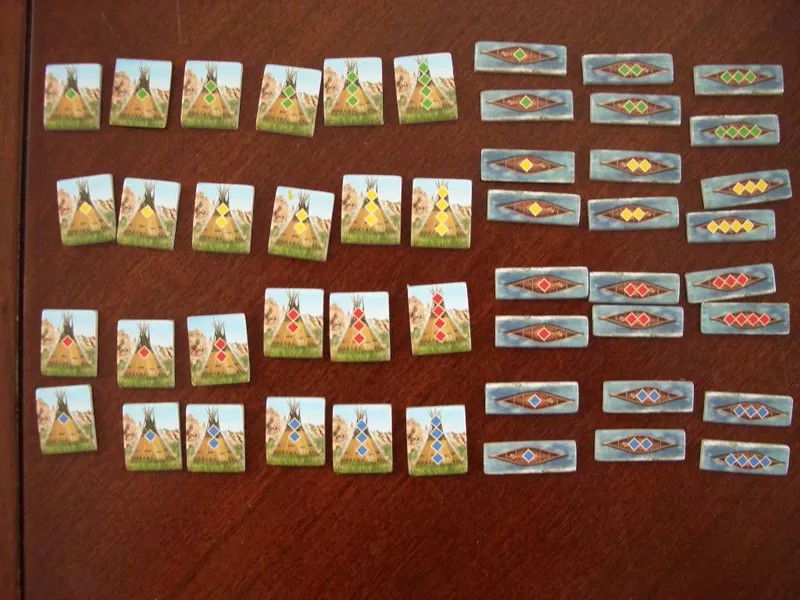
In the market, you can:
Finally, the game starts with 3 start tiles that each have all 3 areas: prairie, mountain, and river. Each tile also includes 3 animals, regardless of which tile it is.
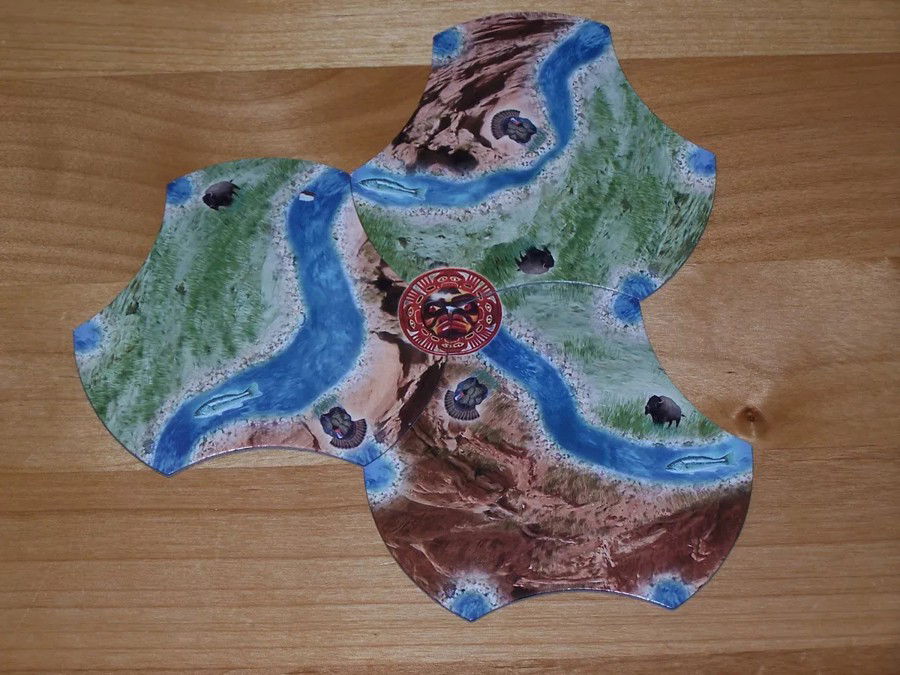
Each turn, players can perform 4 to 6 actions. These actions are available at the bottom of their individual board. They can also perform free actions that let you buy something in the market or even exchange animals with other players. In each individual board, you'll find how much everything costs.
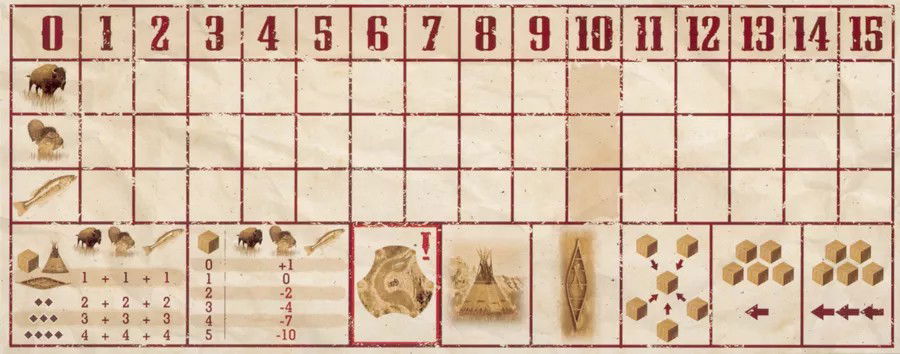
Here's what you can do:
On your turn, just pick the first of your 4 actions. After you finish playing, the player to your left will play their first action, and so on and so forth until everyone has played 4 actions besides their free actions.
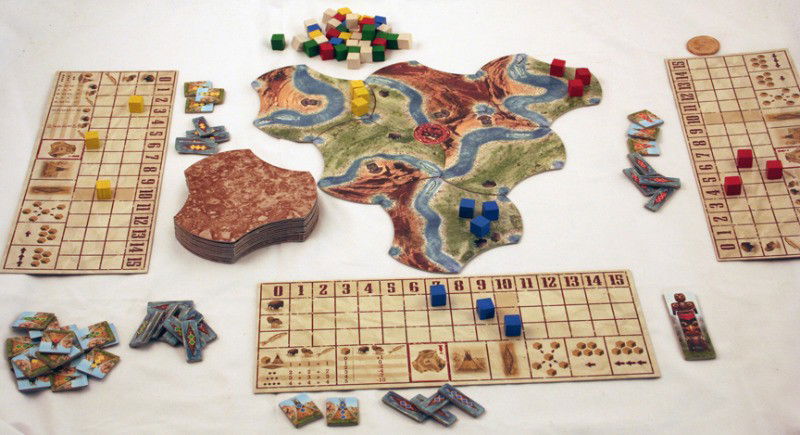
You have to place a tile on your turn, and that's the only way you'll be able to put more people from your tribe in play. Please note that this is already part of your strategy, as you'll have to decide where to put your tile according to what it offers you (Bison, Fish, or Turkeys). Furthermore, you'll have to decide how many people you'll put in play, all considering everything has a cost - the animals you have in stock.
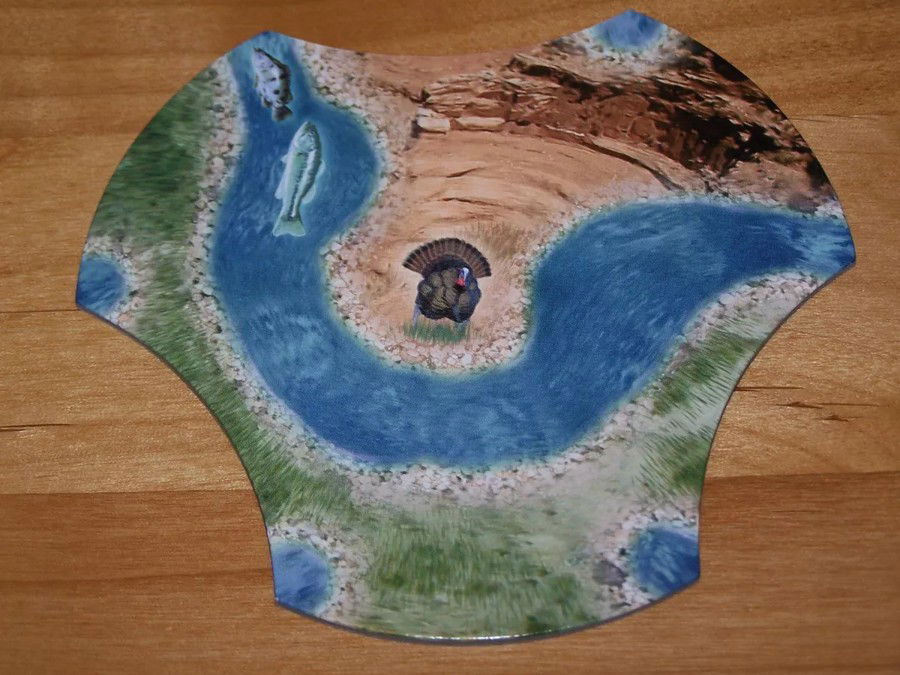
Putting up or expanding teepees, or even building or expanding canoes, is critical, as they're worth more than the people you put in play. This will be critical for your game plan, particularly to conquer more areas.
Speaking of that, when you need to dominate an area, putting more people in play or moving them is often ideal. Three different actions let you move them. One lets you move 5 of them to a certain place, the other lets you move them to a closer square, and another lets you move them far away (up to 3 squares). This is when your strategy and perspective will make a difference.
If none of this seems good to you or your game plan, just pass your turn and don't do anything. But I confess you'll hardly do this, and, if you do, you're probably misplaying.
Besides these actions, you can use free actions. They are: going to the market and getting more people for your tribe, or getting bigger teepees and canoes.
After each player uses 4 actions and their free actions, it's time to count the points you got in that round. First, you get points from your prairies, then your mountains, and then, finally, your rivers.
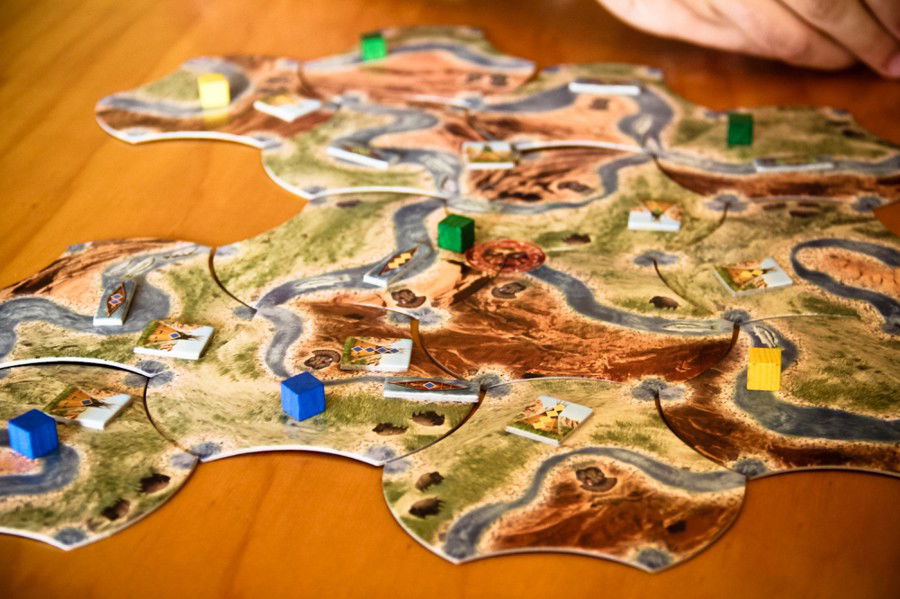
That is, basically, a turn in Bison!
Game End
The game ends at the end of the round when all tiles are used. The way you count your score in the final round is also different: each player sets the animal stocks on their board to zero before they start counting their current animals. You must only count the animals you got in that round.
Please note that you'll often use the previous rounds to get ready for this final count. This means, you'll have to dominate more areas with animals to get a good score in this final round.
The player with the higher animal score (Bison, Turkeys, and Fish) wins the game.
If there is a tie, the player whose lowest stock of animals is higher than the lowest stock of the other players wins. If there is still a tie, players share the victory.
It's that simple!
Tips and Strategies
Bison is really straightforward, but the strategies you can create for it make it excellent. Considering placing tiles is mandatory, you have to be smart when you do it. For instance, placing a tile with more Bison next to a tile that already has Bison is good, but, if you do this, you'll have to dominate that area. Otherwise, you'll be leaving a treasure for your opponents to find.
As a result, putting more people in play when you can, albeit optional, is critical. You can either dominate an area, or let others dominate something else you've cultivated.
Obviously, if that tile has animals you're not interested in, just place it somewhere it "harms" your opponents. That's the only case I admit the best strategy is to not put any people in play, but this won't happen often.
Furthermore, you need to be clever and try to dominate any areas you're interested in with your people. Obviously, as you don't have an endless supply of them, you'll have to manage them and recover them when you put up teepees or build canoes. That's right! The only way to recall your people is to swap them in your tiles for teepees and canoes.
Keep in mind that teepees and canoes are more valuable than your people when you get points for dominating an area. So, invest in teepees and canoes.
Manage your people, go on hunts, fish, build canoes, put up teepees, and win a game of Bison!
Unboxing, Rules, and Gameplay Videos
Check out this unboxing (of the Polish version of the game):
Learn the rules:
Watch some gameplay (in Spanish):
Learning and Teaching Moments
Bison is perfect for you if you're looking for something easy to learn, highly immersive, and that you can play regardless of the language you speak. It will also make you work on your math skills, strategies, and management skills. Yes, it is that great.
It is also breathtaking, as it was beautifully illustrated. Every prairie, river, mountain, and animal in this game is gorgeous. It stands out even to the harshest critics. A point for Bison!
Teaching someone how to play this game is also quite easy. For instance, you can play it with very small children because it doesn't include any heavy "reading". It will be a lot of fun for all sorts of players!
At all times, you'll have to calculate how many animals are in the tiles and your individual board, including adding and subtracting. This means you'll have to use your math skills constantly as you play.
This will also go hand in hand with your management skills and strategies, as how many animals you have dictates how fast you can progress your game plan, work the market, and dominate more areas. Enjoy this brain workout with your friends and family as much as you can!
Last but not least, you can use this book, alongside the internet or a good history book, to teach and learn a bit of Native American history to your friends and family. Learning more about culture is always a great practice.
Bison is a lesson in history, math, management, and strategy!
I highly recommend Bison: Thunder on the Prairie for your collection!









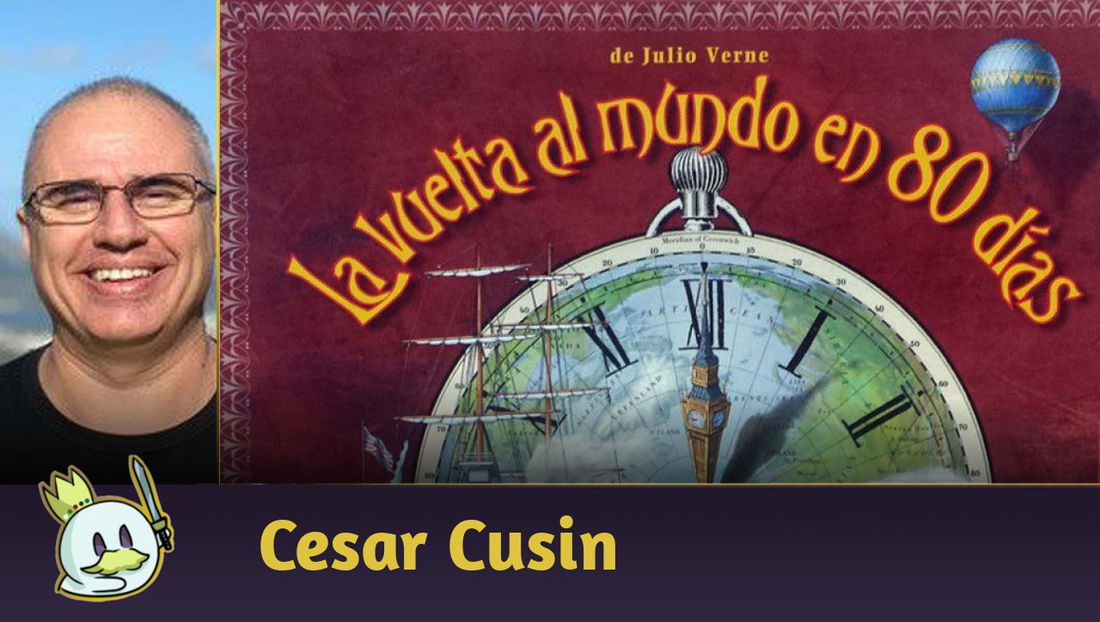



— Comments 0
, Reactions 1
Be the first to comment